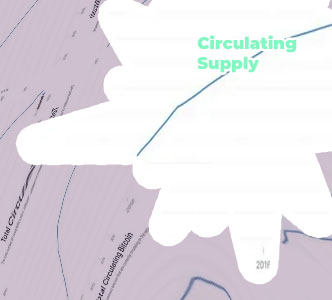
Bitcoin one percent controls circulating coins
Bitcoin's decentralized nature has long been touted as one of its key strengths. However, recent studies have shown that just one percent of Bitcoin holders control a significant portion of the circulating coins. This concentration of wealth raises concerns about the potential impact on the stability and fairness of the cryptocurrency market. To address this issue, we have compiled a list of three articles that offer insights and solutions to the problem of unequal distribution of Bitcoin wealth.
Strategies for Reducing Wealth Inequality in the Bitcoin Ecosystem

As the world of cryptocurrency continues to evolve, the issue of wealth inequality within the Bitcoin ecosystem has become a growing concern. In order to address this challenge, it is crucial to implement effective strategies that can help reduce disparities and promote a more inclusive environment for all participants.
One key strategy is to focus on education and awareness. By providing resources and information to individuals from diverse backgrounds, we can empower them to participate more actively in the Bitcoin ecosystem. This can include workshops, online tutorials, and mentorship programs that help individuals navigate the complexities of cryptocurrency investing and trading.
Another important approach is to promote diversity and inclusion within the Bitcoin community. By actively seeking out and amplifying the voices of underrepresented groups, we can create a more equitable and supportive environment for all participants. This can involve hosting events, panels, and discussions that highlight the experiences and perspectives of individuals from different walks of life.
By implementing these strategies, we can work towards creating a more inclusive and equitable Bitcoin ecosystem that benefits everyone involved. One practical use case of these strategies could be the establishment of a mentorship program for women interested in cryptocurrency investing. By providing guidance and support, these women can gain the knowledge and confidence they need to navigate the Bitcoin ecosystem successfully, leading to positive outcomes such as increased profits and a stronger
Examining the Role of Whales in Bitcoin Market Manipulation
In the volatile world of cryptocurrency, the presence of large holders, often referred to as "whales," has long been a topic of speculation and concern. These individuals or entities possess substantial amounts of Bitcoin, giving them the power to influence market prices through large buy or sell orders.
A recent study delved into the role that whales play in Bitcoin market manipulation, shedding light on their impact on price movements and market sentiment. The findings revealed that whales have the ability to significantly influence the market, causing sudden price fluctuations that can trigger panic selling or buying among smaller investors.
The study also highlighted the importance of monitoring whale activity in order to anticipate potential market manipulation and protect against substantial losses. By tracking the movements of these large holders, traders and investors can better navigate the volatile cryptocurrency market and make informed decisions.
Key points from the study:
- Whales can manipulate Bitcoin prices through large buy or sell orders.
- Monitoring whale activity is crucial for anticipating market manipulation.
- Sudden price fluctuations caused by whales can trigger panic selling or buying.
- Understanding the role of whales in the market is essential for navigating the cryptocurrency landscape.
- By staying informed and vigilant, investors can mitigate the risks associated with whale-induced market manipulation.
Implementing Fair Distribution Models for New Bitcoin Mining Rewards
Bitcoin mining rewards have always been a hot topic in the cryptocurrency community, with debates raging over how to fairly distribute these rewards among miners. As the value of Bitcoin continues to rise, the competition for mining rewards has become even more intense. In response to this, innovative models are being proposed to ensure a more equitable distribution of rewards.
One such model is the Proof of Stake (PoS) algorithm, which aims to address the issue of energy consumption and centralization in Bitcoin mining. By staking a certain amount of coins, miners are able to validate transactions and earn rewards based on their stake, rather than their computational power. This not only reduces the environmental impact of mining, but also prevents large mining pools from dominating the network.
Another proposed model is the Proof of Capacity (PoC) algorithm, which allocates mining rewards based on the amount of storage space a miner contributes to the network. This encourages miners to invest in storage capacity rather than expensive mining hardware, leveling the playing field for smaller miners.
Additionally, the FairCoin algorithm incorporates elements of both PoS and PoC, aiming to create a truly fair and decentralized distribution of mining rewards. By combining different consensus mechanisms, FairCoin ensures that all miners have an equal chance of earning rewards, regardless of their resources.